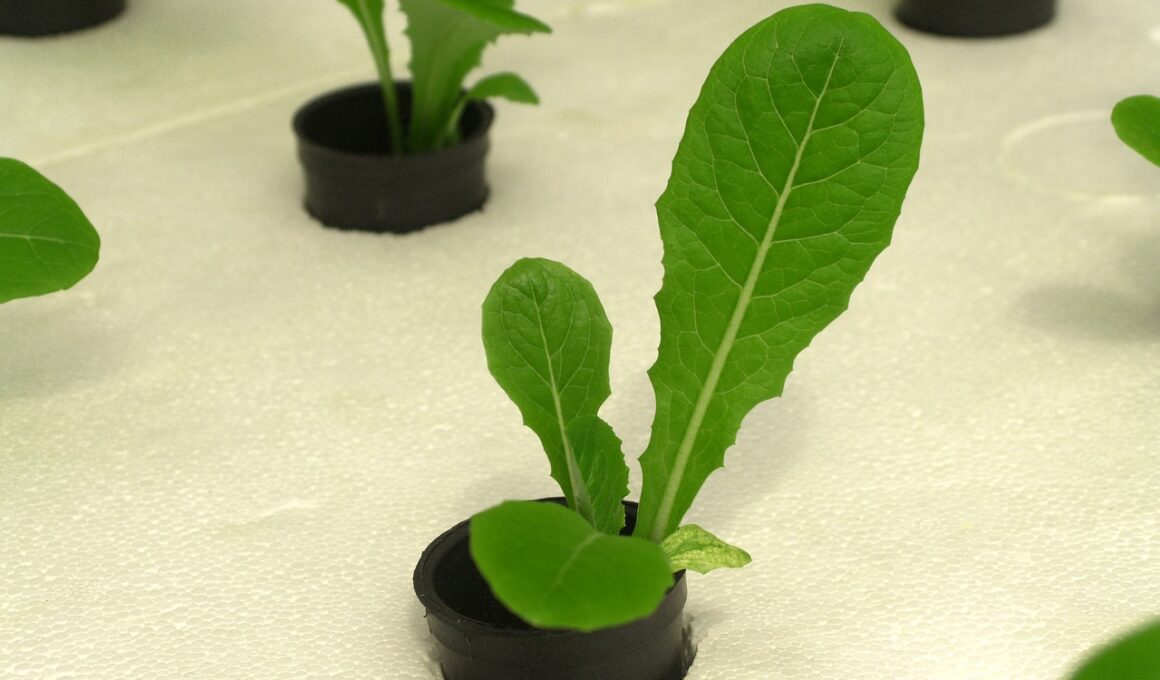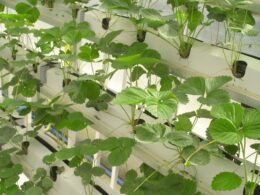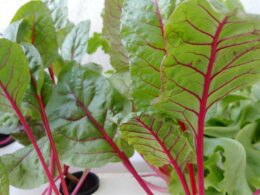Do you enjoy fresh, homegrown vegetables but don’t have access to a traditional garden plot? Hydroponic gardening may be the solution you’ve been searching for. This innovative method of growing plants allows you to cultivate a wide variety of crops without soil, using nutrient-rich water instead.
But what about brussel sprouts? Can they be grown hydroponically?
The answer is yes! Brussel sprouts are a versatile and nutritious vegetable that can thrive in a hydroponic system. With the right equipment and a bit of know-how, you can enjoy a bountiful harvest of these tasty mini-cabbages all year round.
In this article, we’ll explore the basics of hydroponic gardening, the specific requirements for growing brussel sprouts, and some tips for optimizing your yields. So let’s get started!
Understanding Hydroponic Gardening
You’re about to discover the exciting world of hydroponic gardening and how you can grow a wide variety of fresh produce using just water and nutrient solutions. Indoor farming has become increasingly popular due to its many benefits.
By growing plants in a controlled environment, you can avoid harsh weather conditions, pests, and diseases. Hydroponic gardening takes indoor farming to the next level by eliminating the need for soil.
Vertical gardening is another technique commonly used in hydroponic gardening. This method involves growing plants in a vertical structure, such as a tower or wall. By growing plants vertically, you can save space and increase your yield. This is especially useful for those living in urban areas with limited outdoor space.
With hydroponic gardening, you have the freedom to grow a wide range of plants, including herbs, fruits, and vegetables. You can even grow plants that are not native to your region. The possibilities are endless!
So why not give hydroponic gardening a try and discover the benefits of growing your own fresh produce at home, all year round.
Growing Brussel Sprouts
If you’re looking to cultivate a nutrient-rich vegetable with a unique flavor, growing Brussels sprouts hydroponically is an excellent option.
There are several varieties of Brussels sprouts available, each with its distinct flavor and texture. Some popular varieties include Long Island Improved, Jade Cross, and Diablo.
Before you begin growing Brussels sprouts, it’s essential to understand the optimal growing conditions. Brussels sprouts require a lot of sunlight, so it’s crucial to place your hydroponic setup in a sunny location. They also thrive in cooler temperatures, with an ideal temperature range of 60 to 65 degrees Fahrenheit.
The pH level of the nutrient solution should be between 6.0 to 6.5. It’s also important to monitor the nutrient solution’s temperature, as it should be between 65 to 75 degrees Fahrenheit.
If you maintain these optimal growing conditions, your Brussels sprouts will grow healthy and delicious. In summary, growing Brussels sprouts hydroponically is a great way to cultivate this nutrient-rich vegetable.
Understanding the optimal growing conditions is crucial to ensure a bountiful harvest of this delicious vegetable. With proper care and attention, you can enjoy fresh and healthy Brussels sprouts year-round.
Hydroponic Brussel Sprouts
If you’re considering growing Brussel sprouts hydroponically, there are a few key advantages to keep in mind. First, you can grow them year-round regardless of weather conditions. Second, hydroponic systems can be more efficient and use less water than traditional soil-based methods.
However, there are also some challenges to consider. For example, ensuring proper nutrient levels and preventing pests and disease in the closed environment of a hydroponic system.
Advantages of Growing Brussel Sprouts Hydroponically
Growing these vegetables using hydroponic methods offers numerous benefits that traditional methods can’t match. Here are four reasons why you should consider growing Brussel sprouts hydroponically:
-
Consistent and controlled growth: Hydroponic systems allow you to control the environment in which your plants grow. This ensures that your Brussel sprouts receive the exact amount of nutrients, water, and light they need to thrive. As a result, you can expect a consistent and predictable yield regardless of the weather or season.
-
Space-saving: Hydroponic systems take up less space than traditional farming methods. This makes them a great option for growers who have limited space or want to maximize their production in a small area.
-
Reduced water usage: Hydroponic systems use up to 90% less water than traditional farming methods. This is because water is recycled and reused in the system, so there’s no need to constantly irrigate the plants.
-
Higher yield: Hydroponic systems can produce up to 30% higher yields than traditional farming methods. This is because the plants receive the exact amount of nutrients they need, resulting in healthier and more productive plants.
By growing Brussel sprouts hydroponically, you can enjoy a sustainable farming approach while reaping a host of nutritional benefits. Plus, you’ll have a reliable source of fresh produce that you can enjoy year-round.
Challenges of Growing Brussel Sprouts Hydroponically
You may encounter some difficulties when cultivating Brussels sprouts using hydroponic methods. One of the main challenges is ensuring that the plants receive enough nutrients. Brussels sprouts require a lot of nitrogen, phosphorus, and potassium, and it can be tricky to maintain the right nutrient balance in the water.
You’ll need to regularly monitor the nutrient levels and adjust them as necessary to ensure that the plants are getting what they need. Another challenge of growing Brussels sprouts hydroponically is pest management. Because the plants are grown in a controlled environment, pests can quickly become a problem if left unchecked.
Common pests that can affect Brussels sprouts include aphids, whiteflies, and spider mites. You’ll need to regularly inspect your plants for signs of infestation and take appropriate measures to control the pests, such as introducing beneficial insects or using organic pesticides.
Despite these challenges, growing Brussels sprouts hydroponically can be a rewarding experience, especially when you consider the nutritional benefits of this delicious vegetable.
Is the Growing Process for Brussel Sprouts in Hydroponics Similar to Broccoli?
The growing process for Brussel sprouts in hydroponics is quite similar to that of growing broccoli hydroponically. Both vegetables thrive when provided with the appropriate nutrient solution and controlled conditions. However, certain adjustments may be required to accommodate specific requirements of each crop. In terms of hydroponic cultivation, both Brussel sprouts and broccoli can be successfully grown using this innovative method.
Tips for Growing Brussel Sprouts Hydroponically
To successfully cultivate Brussel sprouts using hydroponic techniques, it’s important to follow these expert tips. First, ensure that the pH levels of your nutrient solution are between 6.0 to 7.5. This will help the plants absorb the necessary nutrients for growth. Constantly monitor the pH levels to make sure they stay within this range.
Second, make sure the nutrient solution has the right balance of nutrients. Brussel sprouts require high levels of nitrogen, phosphorus, and potassium, along with other essential micronutrients. Use a high-quality, hydroponic nutrient solution that is specifically designed for growing vegetables.
Lastly, ensure that your plants have enough light and space to grow. Brussel sprouts require at least 6 hours of sunlight or artificial light per day. They also need enough space for their roots to grow. A hydroponic system with ample space for each plant is recommended.
By following these tips, you can successfully grow Brussel sprouts hydroponically. Remember to constantly monitor your plants’ growth and adjust accordingly to ensure a healthy and bountiful harvest. Happy growing!
Conclusion and Future of Hydroponic Brussel Sprouts
Now that you’ve learned all the tips for growing Brussels sprouts hydroponically, you might be wondering what the future holds for this method of cultivation. The truth is, hydroponic Brussels sprouts have a lot of potential in the market. They’re becoming increasingly popular due to their unique taste and nutritional benefits.
More and more people are looking for organic and sustainable food options, and hydroponic Brussels sprouts fit the bill perfectly. Moreover, growing Brussels sprouts hydroponically can have a positive impact on the environment.
Traditional farming methods require a lot of water and land, which can lead to soil erosion and water pollution. Hydroponics, on the other hand, uses significantly less water and does not require soil, which means there’s less waste and fewer chemicals used. This makes hydroponic Brussels sprouts a more eco-friendly option.
In conclusion, growing Brussels sprouts hydroponically is an excellent way to produce healthy and sustainable food. With the potential market for organic produce growing, hydroponic Brussels sprouts can be a profitable venture for farmers and entrepreneurs. Additionally, the environmental impact of hydroponics makes it a more responsible choice for our planet. So, if you’re interested in growing Brussels sprouts, why not give hydroponics a try?
Frequently Asked Questions
What are the benefits of growing brussel sprouts hydroponically compared to traditional gardening methods?
Growing brussel sprouts using hydroponic methods has many advantages compared to traditional gardening methods. One major benefit is the ability to control and optimize the growing environment, resulting in higher yields and faster growth.
Additionally, hydroponic systems use less water and can be grown in smaller spaces, making them ideal for urban gardening. However, there are also challenges to hydroponic gardening, such as the initial cost of equipment and the need for expertise in managing the system.
Overall, the advantages of hydroponic gardening make it a great option for those looking to maximize their crop yields while minimizing their environmental impact.
Can hydroponic brussel sprouts be grown organically?
Looking to grow organic hydroponic brussel sprouts? The good news is that it’s possible! Sustainable hydroponic gardening practices can be implemented to ensure that your brussel sprouts are grown in a safe and environmentally friendly way. These practices include using organic nutrient solutions and avoiding chemical pesticides.
By using hydroponic systems, you can also save water and space compared to traditional gardening methods. So, if you’re looking for a way to grow delicious, nutritious, and organic brussel sprouts, consider giving hydroponic gardening a try!
How much does it cost to set up a hydroponic brussel sprouts system?
Setting up a hydroponic brussel sprouts system can be a great investment for fresh and healthy produce. When considering the cost analysis, it’s important to factor in the initial setup costs such as the hydroponic system, lighting, and nutrients. These costs can vary depending on the size of the system and the quality of the components.
However, once the system is up and running, the maintenance costs are typically lower than traditional soil-based farming. This is because hydroponic systems require less water and nutrients, and there’s no need for pesticides or herbicides. Regular system maintenance includes checking pH levels and ensuring proper water flow.
With a little bit of effort, you can enjoy fresh, organic brussel sprouts all year round.
What are the best varieties of brussel sprouts to grow hydroponically?
When it comes to growing brussel sprouts hydroponically, the best varieties to choose from are those that are suited to the growing techniques and nutrient requirements of hydroponic systems. Some of the most popular varieties include ‘Diablo’, ‘Jade Cross’, and ‘Long Island Improved’. These varieties produce high yields and have a strong resistance to pests and diseases, making them ideal for hydroponic growers looking for a safe and reliable crop.
When growing brussel sprouts hydroponically, it’s important to pay close attention to the nutrient requirements of the plants, ensuring that they receive the right balance of nutrients in order to thrive. By following the right growing techniques and nutrient management practices, hydroponic growers can enjoy a bountiful harvest of healthy and delicious brussel sprouts.
How do you prevent pests and diseases in hydroponic brussel sprouts?
To prevent pests and diseases in your hydroponic brussel sprouts, there are several preventive measures you can take.
Firstly, ensure that you maintain a clean and sterile growing environment. This means regularly sanitizing your equipment and ensuring that there’s no organic matter left in your system.
Additionally, you can use natural remedies such as neem oil, garlic spray, or insecticidal soap to deter pests.
It’s also important to monitor your plants regularly for any signs of disease or infestation and act quickly if you notice any issues.
By taking these steps, you can help ensure a healthy and thriving crop of hydroponic brussel sprouts.
Conclusion
So, can you grow Brussel sprouts hydroponically? The answer is yes!
Hydroponic gardening is a fantastic way to grow vegetables, and Brussel sprouts are no exception. Growing Brussel sprouts hydroponically is a great option for those who don’t have access to outdoor space or want to avoid soil-borne pests and diseases.
To grow hydroponic Brussel sprouts, you’ll need to create a nutrient-rich solution and provide the plants with ample light and water. With proper care and attention, you can expect to harvest delicious, fresh Brussel sprouts in just a few months.
So why not give it a try? Hydroponic gardening is a fun and rewarding way to grow your own food, and Brussel sprouts are a tasty and nutritious addition to any meal.









